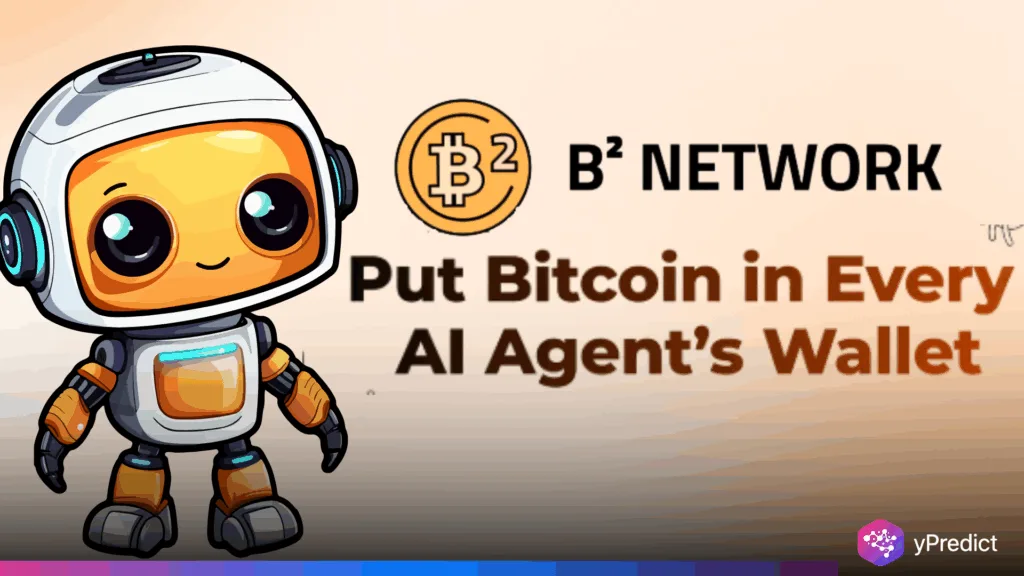
We live in an age of artificial intelligence, with AI systems making billions of API calls every day across industries. Today we have everything from powerful chatbots, AI agents and intelligent automation, and the need for computing has reached an all-time high. Still, there is one crucial question, where does the energy to power all of this come from? The world is looking for reliable, scalable, and efficient alternative energy for the digital economy.
This is where Bitcoin energy comes in. Besides its wrappers as a decentralized financial network, Bitcoin delivers an energy layer that will directly serve the AI ecosystem. As solutions like B² continue to grow, Bitcoin energy becomes an enabling substrate for AI agents. The convergence of blockchain and AI represents a novel stage move towards a scalable, high productive digital economy that is energy sustainable.
Why AI Agents Need More Than Just Code
AI agents are designed to be autonomous digital workers that collaborate with users, execute tasks, and even process transactions. They need constant energy and easy-to-use systems to transcend their status as tools and perform transactions. Without them, they quickly hit a wall in their ability to grow.
This is the value of Bitcoin energy, as it allows developers to embed their AI agents into a decentralized power layer, enabling the AI agents to ensure that every task, every decision, is backed by scalable energy flows. Instead of AI agents having to worry about bottlenecks in the infrastructure, they can function independently in the digital economy.
B²: The Bridge Between Bitcoin and AI Agents
Powered by B², innovation occurs as Bitcoin energy is sent directly to the wallets of the AI agents. Because the AI agents can access a constant power supply, they can work, transact, and innovate, uninterrupted.
This creates entirely new efficiencies in business; AI agents will not depend on traditional systems- which can be slow and expensive- to do their work instead they will use Bitcoin energy which flows naturally in the system. Power is no longer an access issue, but an enabler.
Transforming the Digital Economy with Bitcoin Energy
Trust, speed and scalability remain foundational to the digital economy, and with Bitcoin energy integrated into AI capabilities users can transact safely and instantaneously. This bolsters user trust, reduces costs and offsets potential stagnation in innovation attributed to lack of energy availability.
Imagine a world where AI agents are more regularly managing supply chains of robotic fleets, optimizing logistics, and coordinating financial markets with Bitcoin energy. This is not merely speculative projection. This is happening now! B² is a solution in the tangible context of these interactions. The digital economy becomes resilient when energy flows are decentralized and secure.
The Strategic Advantage of Combining Bitcoin and AI
Companies that pursue this strategy will be more competitive, more likely to grow more rapidly, and will be able to lower their costs and, most importantly, will remain flexible in highly dynamic markets. Also, they will avoid the risk of depending upon centralized infrastructure that often collapses under pressure.
Bitcoin energy enables AI agents to be more than providers of service, but join in the digital economy as resource owners, able to retain, manage, and deploy resources easily and independently. This transition will lead to a change in perception of not only AI, but also the capacity of blockchain to impact the future.
Building a Future Where AI and Bitcoin Work Together
As global demand for AI continues to grow, energy is still the most important piece of the puzzle. Bitcoin energy combined with solutions like B² is what fills that gap to continue and grow sustainably. The rationale behind it is straightforward yet powerful, when every AI agent can get energy direct to wallet, the choke point of a world of higher infrastructure demands essentially disappears.
The integration of decentralized finance and artificial intelligence launch us into a new era. This is more than a shift in technology. It is about establishing a balanced economy in the digital sphere where energy is free flowing and agents are working significantly smarter..






